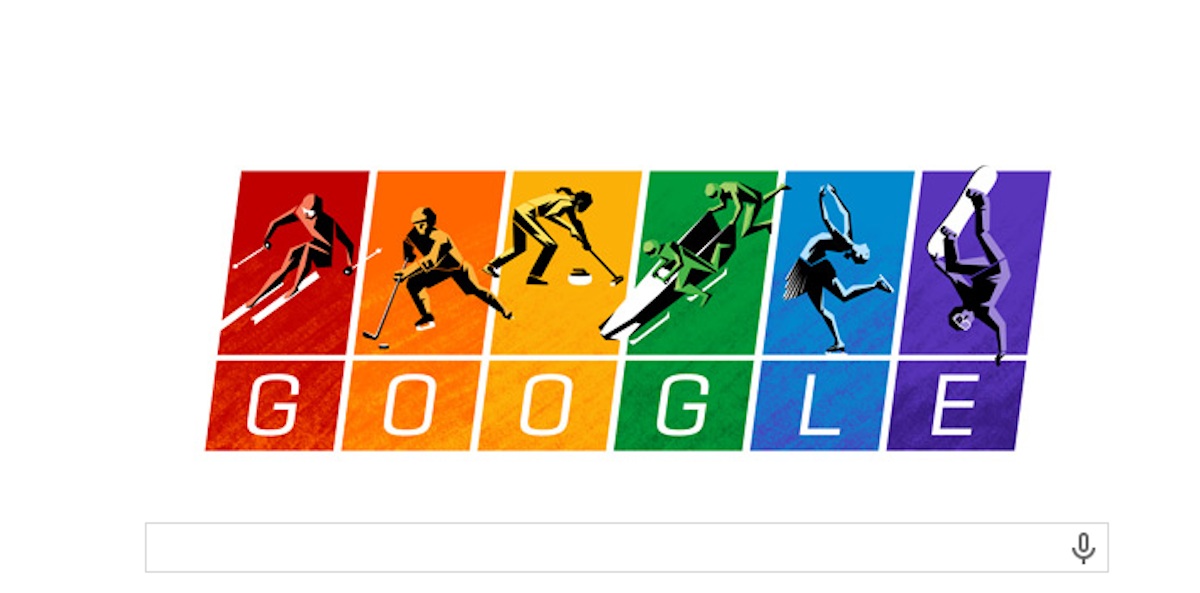Gay Rights Activists Hope to See More Messages of Support During Sochi Olympics

Image via google.com
The Sochi Olympics are underway, and already some activists and Olympians have made the message clear that Russia’s policies against gay rights won’t be tolerated.
Within hours of the opening ceremony, on the outskirts of the facilities at the winter games, four protesters that pulled out a rainbow flag and marched the streets of St. Petersburg were apprehended by Russian officials and detained for breaking laws that forbid people in the country from promoting what officials call “gay propaganda.”
Inside the walls of the Sochi Olympics, openly gay snowboarder Cheryl Maas, representing the Netherlands, prominently extended a hand towards a live camera and displayed a glove with rainbows and a unicorn’s head on it.
And here in Boston, gay rights advocates think that these actions are the tipping point for even more shows of support that will soon follow throughout the nearly month-long event.
“I have seen in the last few days several Olympians talking to the press, saying they won’t hide and won’t keep silent while there,” said Sylvain Bruni, president of Boston Pride. “I do think that from what we have seen so far, people are going to try and sneak in some more messages of LGBT friendliness and support.”
Bruni said the international spotlight—and constant media attention—will provide a perfect chance for gay rights supporters to let Russia know that their policies are discriminatory in nature.
He said if both Olympians and those visiting Russia didn’t take the chance to show support, it would be a missed opportunity. “Given a platform, those issues and messages are out in the open and can be seen. My personal opinion is, absolutely, yes— I’m all for people being out there and saying what they think,” said Bruni. “This is one of the top platforms for international visibility, and the audience is just so large, and considering the conditions I would think it was a missed opportunity if no such messages came across from the athletes on site.”
Because of the increased threat of terrorist activities, Bruni believes that Russian police and authorities won’t spend as much time trying to block the pro-gay message, since they will be largely focused on keeping attendees and athletes safe throughout the competitions.
He also thinks that because the whole world is watching, Russian President Vldamir Putin won’t call for mass arrests against people trying to push their views, because it could further soil the fact that the country is playing host to the Olympics.
“It’s a difficult line for the Russian government to take s strong or visible action there because everyone will be watching. It would be a detriment to the legacy of the Olympics in Sochi that they want to have,” said Bruni. “They don’t want people to say, ‘that’s where all the gays were being beat up and put in jail.’ I think they will let things go for that very reason.”
Activists on the ground and on the slopes aren’t the only visible representations of support for the LGBT community. Here in the US, Google made a bold statement on opening day at Sochi by making their homepage illustration a rainbow-colored theme, with athletes on each panel. Underneath the picture Google included the rules from the Olympic charter, which reads:
The practice of sport is a human right. Every individual must have the possibility of practicing sport, without discrimination of any kind and in the Olympic spirit, which requires mutual understanding with a spirit of friendship, solidarity and fair play.
President Barack Obama also made the message clear that Russia’s policies impede people’s equal rights when he picked openly gay athletes to be part of the Olympic delegation committees for the ceremonies held before and after the international competition.
Before heading to Russia, Boston College Law student Caitlin Cahow, one of the members of the two committees, said she was proud to be presenting a country that has made the most dramatic shifts on some of the issues regarding gay rights, and she looked forward to representing that kind of diversity.
Bruni said he can’t predict what else might be in store, but he is hoping that someone makes a bold statement after winning a gold medal in one of the competitions. “I am not aware of anything be prepared, but I would love to see an Olympian on the podium receiving their medal and then pulling out a rainbow flag and waving it,” he said.


